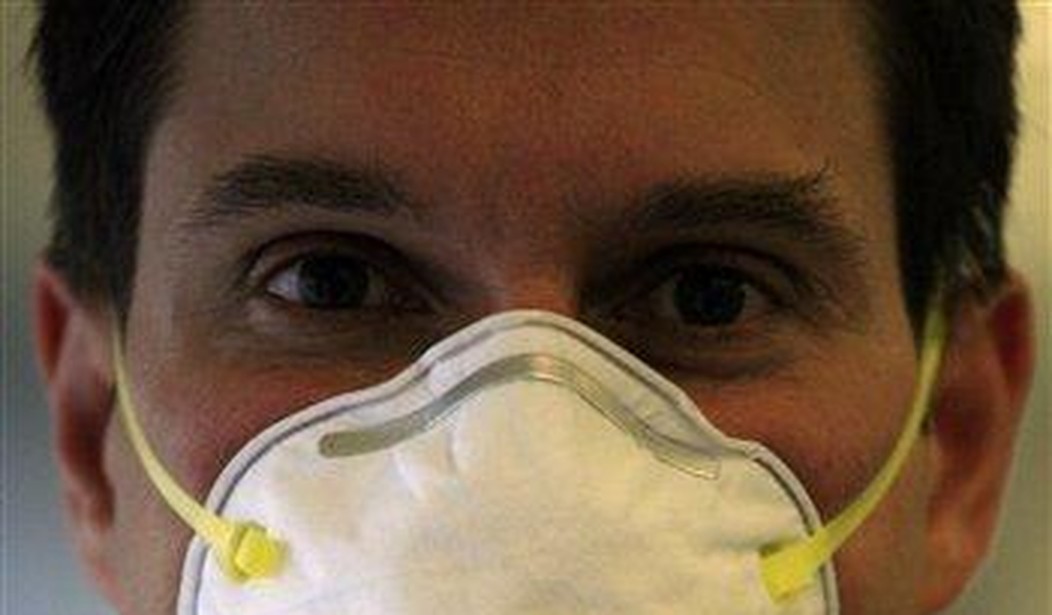A few months back a controversy burst onto the scene with the now infamous Cochrane Review analysis that demonstrated that masking is useless as a population-level non-pharmaceutical intervention to address the COVID pandemic. There simply is no evidence that masking reduces the burden of disease and plenty of evidence that they don’t in large populations.
When the review dropped it caused quite a stir for the most obvious of reasons: it popped a bubble that should never have been allowed to inflate. It has been well known for a century that whatever their virtues, masks simply do not work to stop the spread of respiratory viruses in large groups over any extended period of time. This was a consensus position–one that Anthony Fauci himself endorsed before COVID changed the messaging suddenly.
Cochrane Review is widely held as a gold standard for medical information, and its findings are based upon meta-analyses of randomized controlled trials done by researchers across the world. These reviews do not rely on one study but on tens or hundreds using different methods in different places, with the goal of sorting out the signal from the noise that will always be found in any particular study.
When the analysis dropped the world seemed to explode. To have Cochrane Review debunk the mask narrative was unacceptable, and like a ton of bricks, the criticism poured in.
The editor apparently panicked. A quick addendum was attached to the analysis suggesting that it was not dispositive–and that addendum has been used ever since to claim that the review was flawed or even retracted. That is not and never was the case, and it is clear that the editor simply buckled to criticism.
Paul Thacker has done a deep dive into what happened and why, and the story is dispiriting. A study that was based upon extensive analysis, peer-reviewed, and based on the best evidence available was undermined by an editor with no relevant experience in a matter of hours, for the simple reason that she was scared by criticism from news organizations such as the New York Times.
The Cochrane Library has remained a trusted source for clinicians and policy makers making critical healthcare decisions for 30 years. But now, faced with an ongoing crisis caused by multiple missteps, Cochrane editor-in-chief, Karla Soares-Weiser has hired the pricey consulting firm Envoy to address scientists’ concerns about her lack of transparency, leadership, and communication skills. The crisis came to a head last March, when Soares-Weiser rushed out a statement undermining Cochrane scientists’ assessment that masks provide little help in stopping community transmission of viruses.
The Cochrane crisis over their mishandling of the mask review comes as CNN’s resident mask expert Jonathan Reiner has called for masking once again and several universities, such as Dillard, have reinstated mask policies.
Neither Soares-Weiser nor Envoy’s Scott Wayne have responded to questions about the nature or cost Envoy’s contract with Cochrane. Cochrane is supported by government and foundation grants. According to the group’s website, Cochrane has received over $500,000 from the National Institutes of Health.
Scientists who publish in Cochrane own the copyright for their reviews and grant Cochrane a license to publish. Yet, Cochrane has admitted that Soares-Weiser rushed out a statement undermining the scientists’ conclusions, without first consulting them. In an email to Cochrane scientists, Cochrane’s spokesperson wrote that Karla Soares-Weiser had taken full responsibility for the statement put out after a request from the New York Times.
“We understand this is not ideal, especially the timing: we hoped to inform you all before publication but have been blindsided by the NYT and have scrambled to upload our statement.”
Cochrane’s bending the knee to the mask mob has created a crisis of confidence in the research world. Not only do medical professionals rely on Cochrane to be utterly dedicated to the evidence above all else, but the scientists involved in producing the research can’t have a politically-motivated editor simply wiping out their research based on a hasty political decision driven by an inquiry from a newspaper.
Many people have been led to believe that the Cochrane study has been “debunked” or “retracted,” but neither is the case. The sole purpose of the note attached to the study is to create the impression that it has been retracted while it has not. The research stands; the political impression is the opposite, as intended.
To give you an idea how slapdash the editor’s response was, consider this: Soares-Weiser got an email from the New York Times and hastily responded, undermining the scientists–without even making an attempt to speak with them. She implied that the study was wrong without even seeking comment from the people who did the study, on a subject with which she was utterly unfamiliar.
This is science in the modern world.
Now Cochrane is spending its rather limited resources on crisis consultants whose job it is to bail the Editor out of the mess she created.
This is another example of how scientific institutions have been destroying themselves. The narrative requires that mask mandates work; the reality is that they don’t. In a rational world, scientists would simply put out the evidence and let the political actors do their thing. They shouldn’t be activists for or against masks, but rather providers of evidence.
But that is no longer the role of scientists. They have assumed the role of oracles whose job it is to act as con men, backing up the claims of the “right” people.
This works in the short term–most people fall in line, believing that the scientists are non-partisan truth-tellers–and destroys scientific credibility in the long run. People catch on to the con.
This is a disaster. We need unbiased evidence, even if it is never perfect, and we need to know that there are people we can trust.
Now we have neither.









Join the conversation as a VIP Member